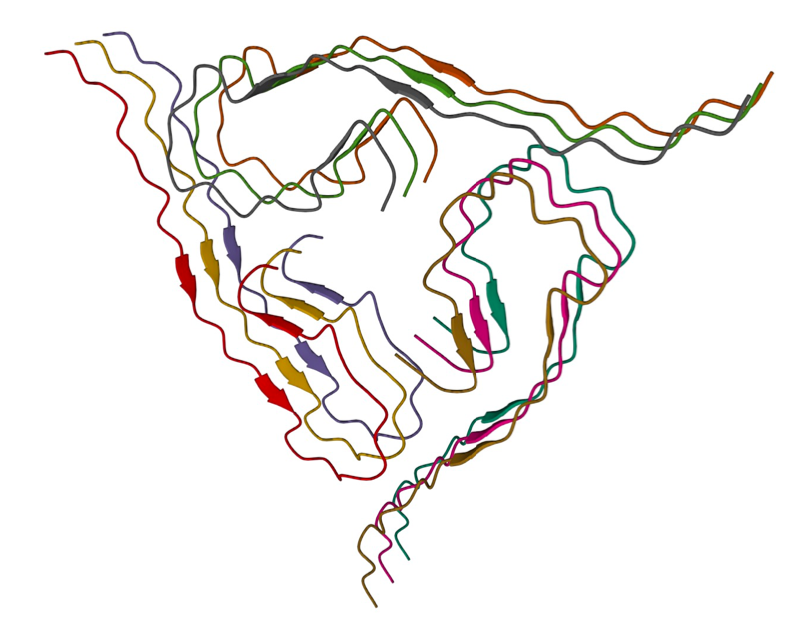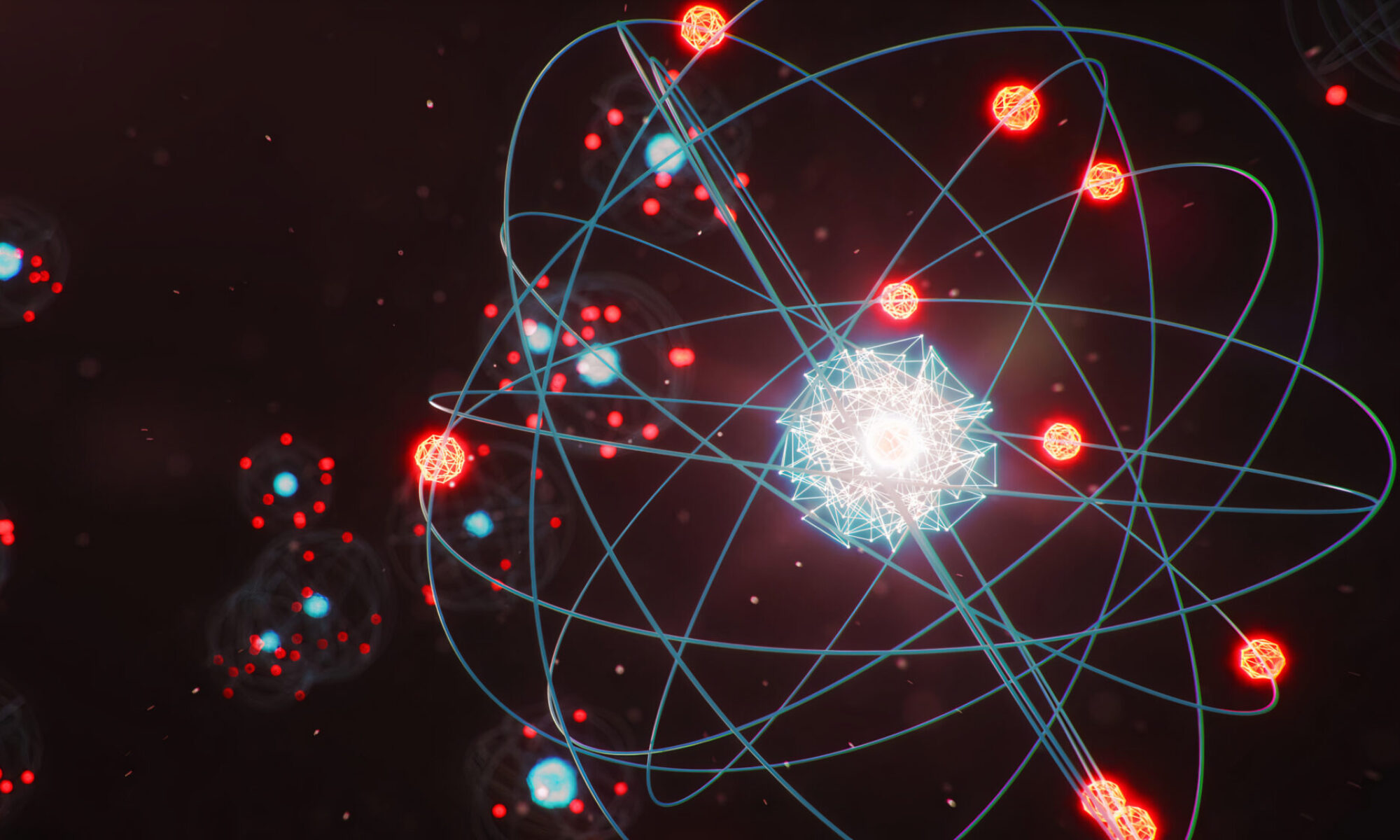High-energy reactions and data analysis on exotic nuclei at R3B/FAIR.
The participation of the research group in the R3B (Reaction with Relativistic Radioactive Beams) experiment at FAIR (Facility for Antiproton and Ion Research) has been centered both on the development of instrumentation for the experimental setup, and on the analysis and simulation of experiments involving high-energy reactions of exotic nuclei. The research done at this facility aims to probe the nuclei and gain a deeper understanding of their interactions, in the light of theoretical frameworks such as quantum chromodynamics.
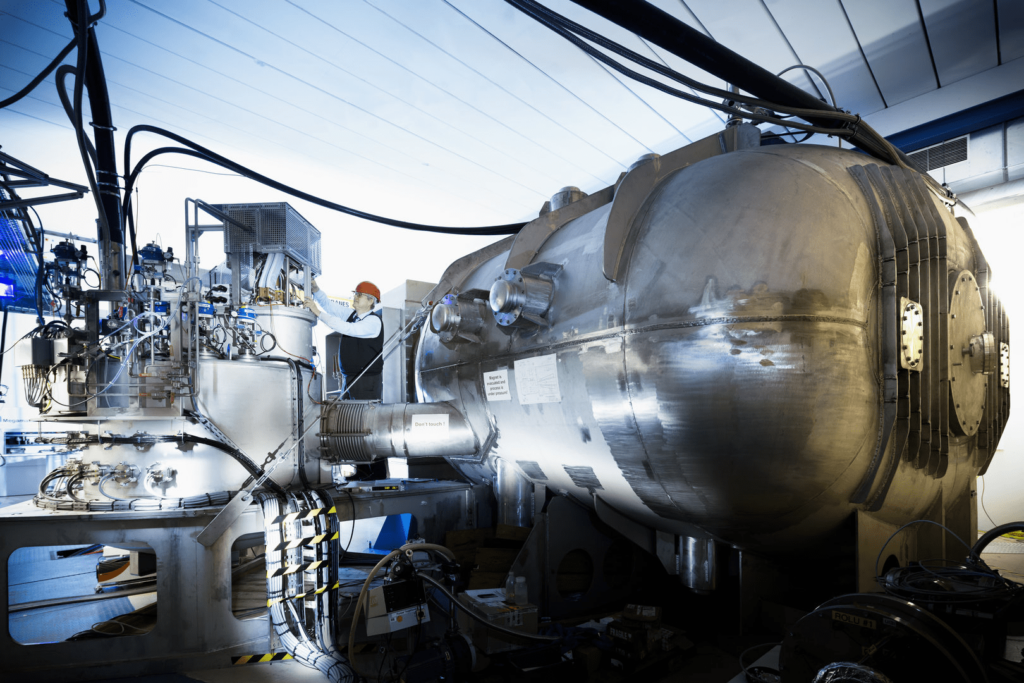
Low-energy reactions on stable and unstable nuclei for Nuclear Astrophysics.
The group is involved in several experiments and studies regarding low-energy reactions on both stable and unstable nuclei, with the aim to extract relevant knowledge for nuclear astrophysics. The main topics are computational calculations of isotope creation conditions, measurements of (p, γ) reactions cross-sections, nuclear instrumentation development and benchmark and elastic alpha scattering reactions with radioactive beams to study the alpha-nuclear potentials. We participate in European and International working groups and consortium which allows us to integrate nuclear astrophysics networks leading research and development in the area. Our local work at FCUL and CTN/IST is extended to international facilities as ISOLDE-CERN, GSI, INFN, and CMAM.
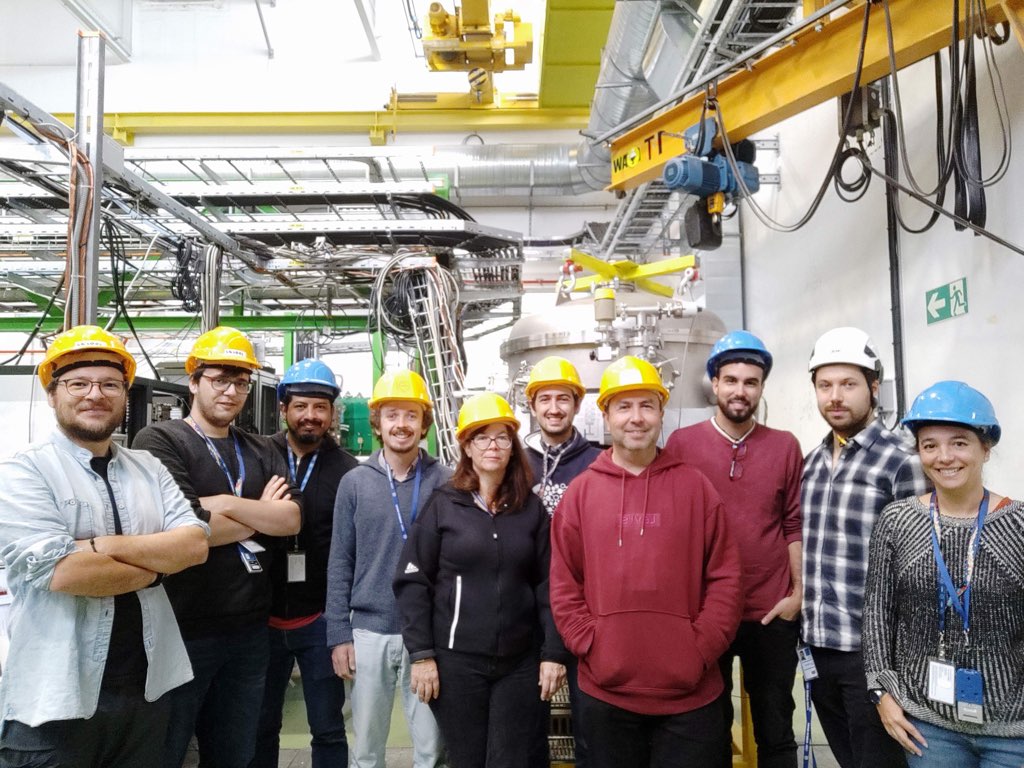
Atomic Astrophysics for the study of kilonovae and the origin of heavy elements.
The atomic astrophysics branch in the grouped is focused on the study of the origin of heavy elements, particularly lanthanides and actinides. As neutron star mergers are predicted to be the main production site of those elements, particular emphasis is placed on atomic calculation of radiative and collisional properties r-process elements, necessary for the modelling of the expanding ejecta of kilonovae explosions. The work is being carried out in close collaboration with the GSI-TNA (Theoretical Nuclear Astrophysics) group.
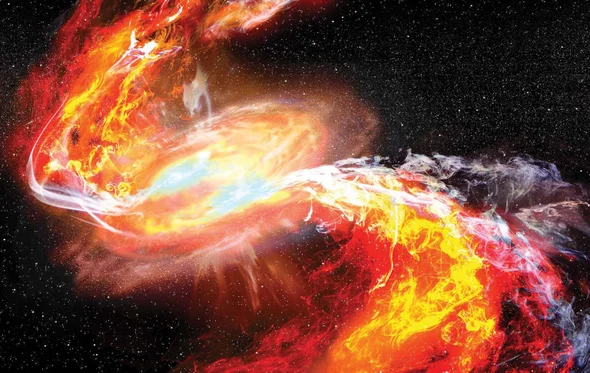
Target production
Our thermal evaporation laboratory at LIP/FCUL specializes in producing high-quality thin film targets for use in nuclear reaction experiments. Our state-of-the-art equipment allows us to create self-supporting, backed, or sandwiched films and coatings ranging from a few nanometers to micrometers in thickness. Our collaboration with nuclear physics groups in Portugal and Spain has enabled us to provide targets for experiments at low to intermediate range nuclear physics facilities. We are proud to have joined the EUROLABS Infrastructure consortium as a supporting group for target production and characterization. Our commitment to maintaining the production and characterization of high-quality targets ensures ongoing partnerships in the coming years.
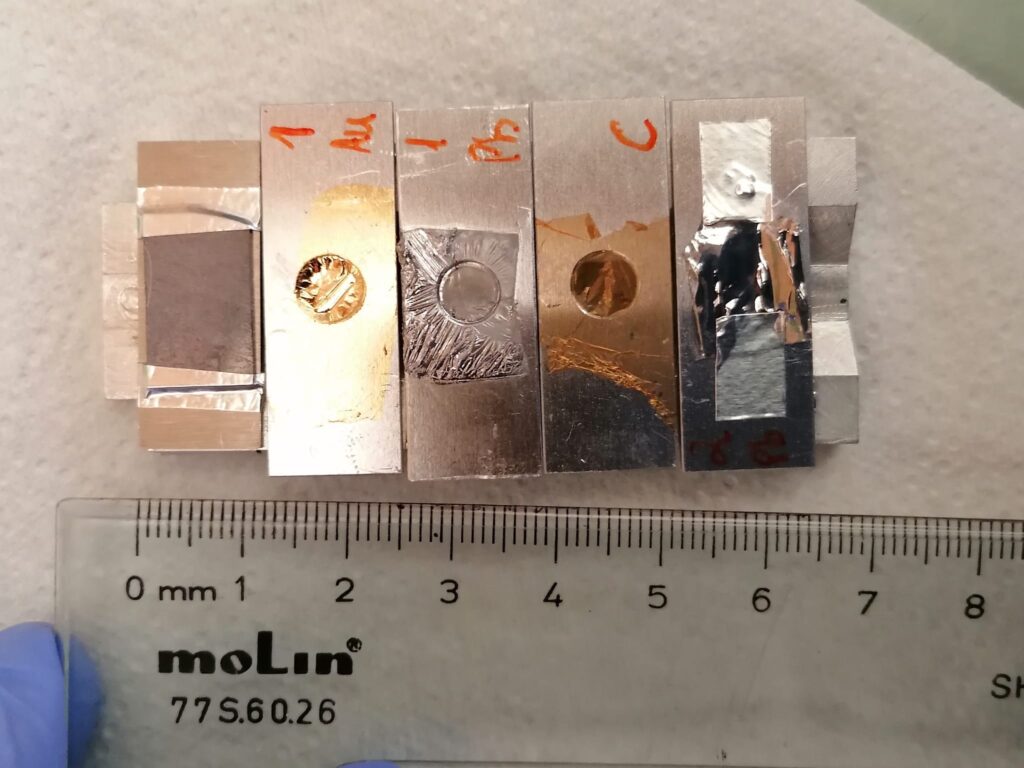
Radiobiology and dosimetry
The group conducts research regarding radiobiology and dosimetry. We perform irradiations with cell cultures to assess oxidative stress and protein expression and aggregation, in order to study the effect of different particles on different cell lines and on amyloids. These are toxic molecules present in the brains of people with neurodegenerative disorders. We use 60Co sources to deliver doses from 1 to 10 Gy and in the future will irradiate with protons and X-rays, collaborating with Hospital de Santa Maria in Lisbon and CMAM in Madrid. Monte Carlo simulations are a strong component of our research that complements the experimental work by studying the dosimetry of the irradiated plates, the effect of radiation on amyloids, and the energy deposition at the cellular scale. Moreover, a dosimeter is being developed in collaboration with CMAM for future proton irradiations of cell cultures.
